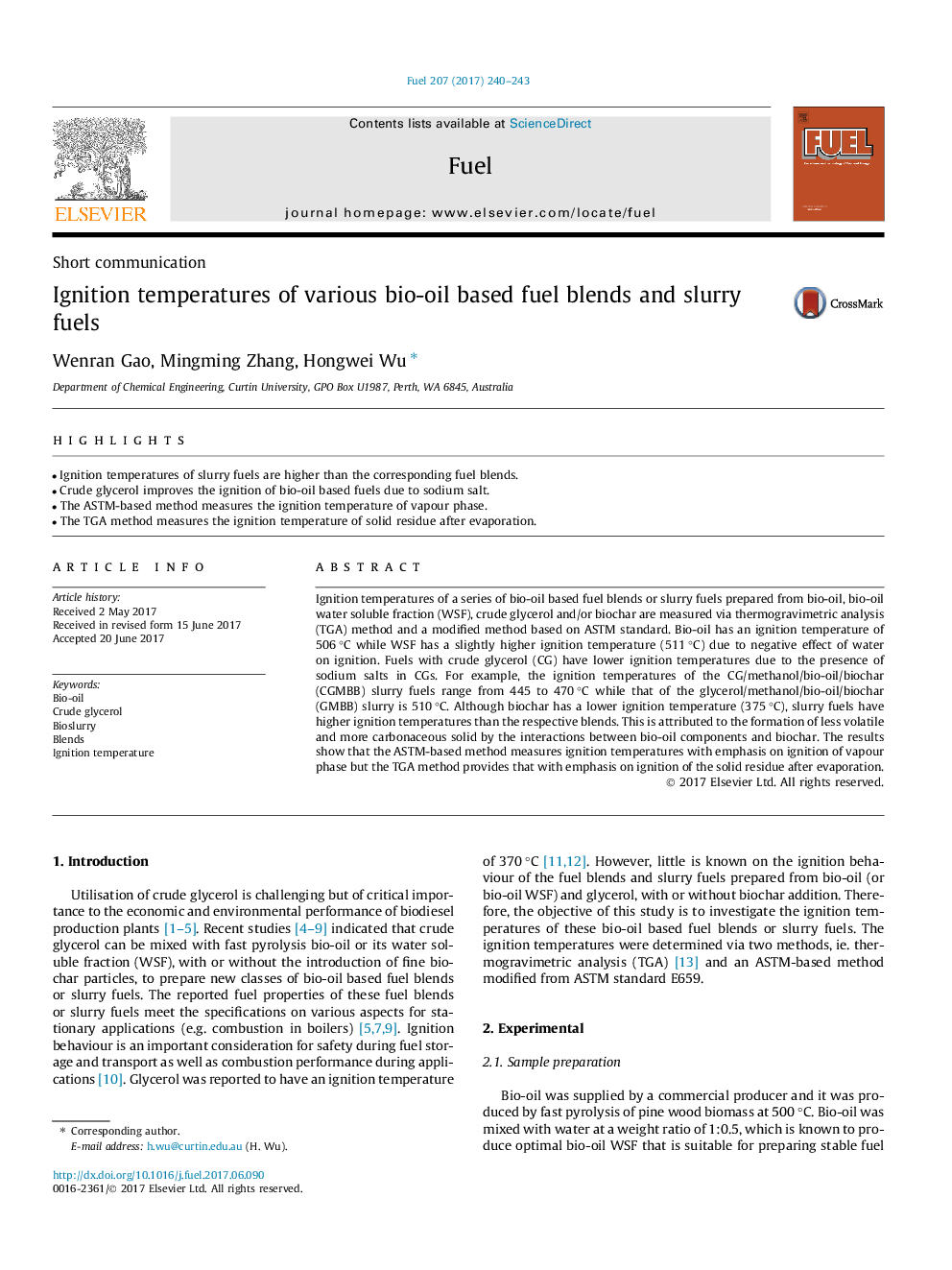| Article ID | Journal | Published Year | Pages | File Type |
|---|---|---|---|---|
| 4768517 | Fuel | 2017 | 4 Pages |
Abstract
Ignition temperatures of a series of bio-oil based fuel blends or slurry fuels prepared from bio-oil, bio-oil water soluble fraction (WSF), crude glycerol and/or biochar are measured via thermogravimetric analysis (TGA) method and a modified method based on ASTM standard. Bio-oil has an ignition temperature of 506 °C while WSF has a slightly higher ignition temperature (511 °C) due to negative effect of water on ignition. Fuels with crude glycerol (CG) have lower ignition temperatures due to the presence of sodium salts in CGs. For example, the ignition temperatures of the CG/methanol/bio-oil/biochar (CGMBB) slurry fuels range from 445 to 470 °C while that of the glycerol/methanol/bio-oil/biochar (GMBB) slurry is 510 °C. Although biochar has a lower ignition temperature (375 °C), slurry fuels have higher ignition temperatures than the respective blends. This is attributed to the formation of less volatile and more carbonaceous solid by the interactions between bio-oil components and biochar. The results show that the ASTM-based method measures ignition temperatures with emphasis on ignition of vapour phase but the TGA method provides that with emphasis on ignition of the solid residue after evaporation.
Related Topics
Physical Sciences and Engineering
Chemical Engineering
Chemical Engineering (General)
Authors
Wenran Gao, Mingming Zhang, Hongwei Wu,
